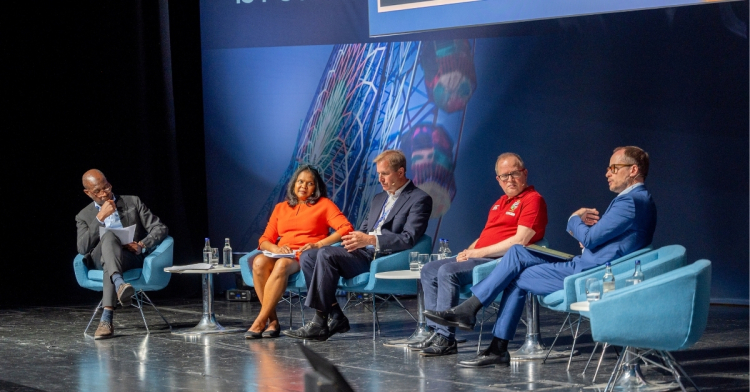Global climate consensus is facing geopolitical headwinds

Risk and insurance takeaways:
- Geopolitical instability is hindering green investment;
- Insurers can partner with businesses to reduce the financial uncertainty of transition risks;
- Risk managers have an essential role to play in building corporate climate resilience.
The global transition to a low carbon economy is being challenged by geopolitical headwinds, according to a panel of experts debating the intersection of climate change and geopolitics. A combination of energy security concerns, growing energy demand and a volatile geopolitical landscape is “challenging the policy environment” and slowing the path to net zero.
For example, political instability is hindering much needed private capital flows. An estimated $130 trillion is required to achieve global net zero by 2050. However, investor confidence has been knocked by an unstable policy environment, supply chain disruption and inflation driving up the cost and viability of green projects.
Despite the volatility and headwinds, however, the panel agreed that the “general trend is still the transition”. A new phenomenon called “green hushing” has emerged, when companies minimise the disclosure of their environmental efforts. Therefore, despite “less corporate noise,” companies are continuing with their transition plans and, in some cases, even accelerating them.
Insurance industry has an important role
For the insurance industry, there are opportunities to support businesses manage the current geopolitical uncertainty and progress the transition to net zero, the panel noted.
First, it can provide insurance capacity for the vast amount of new energy infrastructure that is required. Second, it can take on political or credit risks to reduce the impact of geopolitical uncertainty and facilitate the raising of finance. Third, it can encourage investment by creating insurance for new, often unproven, green technologies.
Risk consulting is also a growing opportunity to support businesses. Insurers are increasingly working in partnership with risk professionals to help them take a strategic approach to climate risks. Climate change was once considered a “discrete risk,” according to William Bruce, global managing director at Aon, but now “it’s completely tied up into the broader operational risks and longer strategic risks.”
With global net-zero ambitions becoming harder to achieve and climate mitigation targets slipping, delegates heard how risk managers can play a key role in helping their companies build resilience to physical climate risk and focus on adaptation measures.
As Rakhi Kumar, global leader at Liberty Specialty, said: “Risk managers are essential to the conversation to stop us taking on the risks before they happen… to advise on what risks to take or to avoid or what is insurable or not insurable.”
The Panel: The Relationship between Geopolitics and Climate Transition
Moderator: Clive Myrie, BBC
Speakers: Sean McGovern, CEO AXA XL; Rakhi Kumar, Global Leader, Liberty Specialty; Dr Tony Rooke, Executive Director, Head of Transition Advisory, Howden; William Bruce, Global Managing Director, Aon
